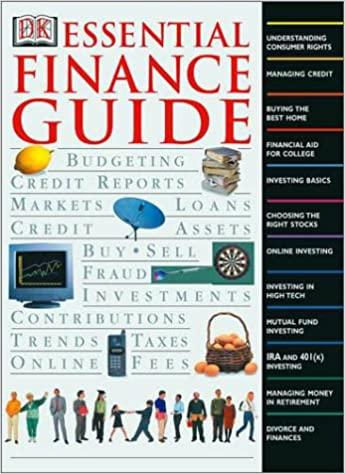Question
You estimate that a passive portfolio, for example, one invested in a risky portfolio that mimics the S&P/TSX Composite stock index, yields an expected rate
You estimate that a passive portfolio, for example, one invested in a risky portfolio that mimics the S&P/TSX Composite stock index, yields an expected rate of return of 12% with a standard deviation of 28%. You manage a risky portfolio with an expected rate of return of 20% and a standard deviation of 37%. The T-bill rate is 7%. Your client's degree of risk aversion is A = 2.5.
a. If he chose to invest in the passive portfolio, what proportion, y, would he select? (Do not round intermediate calculations. Round your answer to 2 decimal places.)
Proportion of y %
b. Is the fee (percentage of the investment in your fund, deducted at the end of the year) that you can charge to make the client indifferent between your fund and the passive strategy affected by his capital allocation decision (i.e., his choice of y)? (Do not round intermediate calculations. Round your answer to 1 decimal place.)
Fee % per year
Step by Step Solution
There are 3 Steps involved in it
Step: 1

Get Instant Access to Expert-Tailored Solutions
See step-by-step solutions with expert insights and AI powered tools for academic success
Step: 2

Step: 3

Ace Your Homework with AI
Get the answers you need in no time with our AI-driven, step-by-step assistance
Get Started


